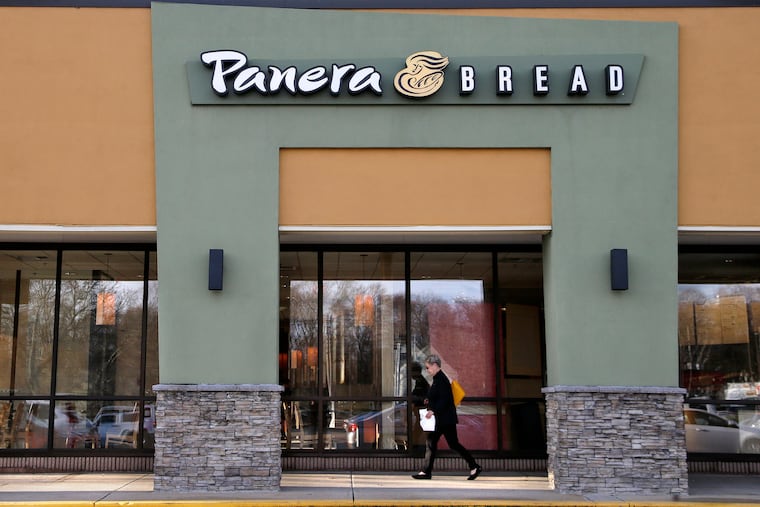Panera displays new disclosures for Charged Lemonade after lawsuit over Penn student’s death
A large Charged Lemonade has 390 milligrams of caffeine. Healthy adults can safely consume 400 milligrams of caffeine a day.

Panera Bread restaurants around the country are displaying a new disclosure warning for the chain’s Charged Lemonade drinks after a lawsuit filed in Philadelphia that alleges the beverage contributed to a University of Pennsylvania student’s death.
Sarah Katz, 21, died in September 2022 after drinking a Charged Lemonade from the company’s store at 40th and Walnut Streets, according to the lawsuit filed in Common Pleas Court last week by the Philadelphia-based law firm Kline & Specter. Katz was diagnosed with a heart condition as a child that made highly caffeinated beverages dangerous to consume.
Charged Lemonade has about 390 milligrams of caffeine in a large, 30-ounce portion, along with guarana extract — another stimulant — and a high amount of sugar, according to the lawsuit. Healthy adults can safely consume 400 milligrams of caffeine a day.
Katz, the lawsuit says, “never knowingly consumed energy drinks” and avoided other highly caffeinated beverages per recommendations from doctors due to her heart condition, known as long QT syndrome type 1. Panera, the lawsuit alleges, failed to properly disclose Charged Lemonade’s caffeine content, which contributed to her death.
Now, the restaurant chain has begun posting disclosures about the drink. Available on the company’s website, the disclosures state that the Charged Lemonade drinks should be used “in moderation,” and warn that the beverages are not recommended for “children, people sensitive to caffeine, pregnant or nursing women.”
Elizabeth Crawford, the attorney representing Katz’s family in the lawsuit, said the disclosures “fall short.”
“While the Katz family maintains this toxic super energy drink should not be sold, they believe the fact Panera is placing a warning sign on their super energy drinks for the first time since this dangerous product was introduced is a start,” Crawford said. “Panera’s warning to drink caffeine ‘in moderation’ is an impossibility to follow given the potency of the drink, the size of the drinks they sell, and the fact they are part of the Unlimited Sip Club.”
The Unlimited Sip Club, of which Katz was a part at the time of her death, serves as a kind of membership that allows customers to have unlimited refills for some drinks, including Charged Lemonade. Including the beverage as part of that promotion, Crawford said, suggests “it is safe to have more than one” of them.
“And that is a big problem because it is not safe to have one,” Crawford said.
A Panera spokesperson did not immediately respond to request for comment. In a statement to NBC, the company said that while caffeine content for the drinks has always been listed in stores, it has posted “enhanced” versions of them “out of an abundance of caution” amid an ongoing investigation.
The new disclosures have been posted in stores, online, and in the Panera app, the company said. After the filing of the lawsuit, a company spokesperson said that Panera believes “in transparency around our ingredients,” and that the chain would “work quickly to thoroughly investigate this matter.”
According to the lawsuit, Katz consumed a large Charged Lemonade from the company’s West Philadelphia location on Sept. 10, 2022. She suffered a cardiac arrest an unspecified amount of time later and was taken to Penn Presbyterian Medical Center. There, she suffered a second cardiac arrest and was pronounced dead.
Panera “negligently and recklessly misrepresented” the safety of the drink in their advertising, the lawsuit alleges. Katz’s family is seeking an unspecified amount in compensatory and punitive damages, as well as interest, court costs, and other relief.
Last week, the FDA said it was “gathering information” about Katz’s death after news of the lawsuit.